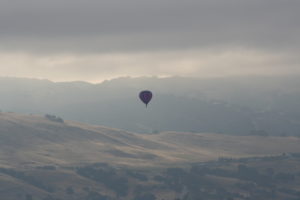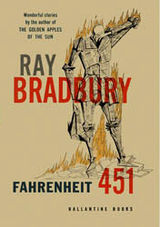Speculating on The Classics
In previous posts, I’ve mentioned some older-than-dirt stuff we don’t usually think of as speculative fiction, like epic poems and John Bunyan’s Pilgrim’s Progress.
 Recently I’ve been visiting with another author whose work isn’t usually mentioned in discussions of the genre but whose writings are essential blocks in its foundation: Edgar Allan Poe.
Recently I’ve been visiting with another author whose work isn’t usually mentioned in discussions of the genre but whose writings are essential blocks in its foundation: Edgar Allan Poe.
If memory serves me correctly, I was introduced to him in elementary school, or perhaps junior high, as the father of the short story. Not without reason. I don’t know what things kid read in school nowadays, but there was a time when every student read ”The Telltale Heart” and/or other Poe works as prime examples of short fiction.
Not long ago I acquired an old paperback copy of The Complete Tales and Poems of Edgar Allan Poe published by Random House (Vintage Books Edition) in 1975. While reading it, intermittently, from front to back (an ongoing process), I came to a realization early on: Poe was ahead of his time.
Decades before Jules Verne made a name for himself writing about space travel, half a century before H. G. Wells shocked the world with his tale about invasion by Martians, Poe contemplated the practical difficulties of flying to the moon in a hot air balloon and suggested scientific solutions in “The Adventure of Hans Pfaall.” Do you like zombies? Check out “The Facts in the Case of M. Valdemar” (which name sounds suspiciously like Harry Potter’s nemesis Voldemort, if you ask me). And beside merely inventing the short story, it seems Poe also created the first fan-fic — sort of — in “The Thousand-and-Second Tale” starring Scheherazade.
That’s just what I found in the first 100 pages of a volume containing over 1000. What portents of the literary future might I find as I continue? It will be interest to see.
As you’d expect, though, despite Poe’s progressive thinking, his stories are dated. If you’ve ever read “The Gold Bug” in its original form, you know how shockingly “incorrect” the character Jupiter would be deemed by today’s cultural watchdogs. If you read the scientific explanations in “Hans Pfaall,” the moon flight story, you just might laugh out loud. Read the  accounts of the wonders seen by Sinbad in “The Thousand-and-Second-Tale” and you might ask, “Was Poe a creationist?” He wouldn’t even understand the question; at the time the story was written, the world had not yet divided along the Evolution v. Creation line.
accounts of the wonders seen by Sinbad in “The Thousand-and-Second-Tale” and you might ask, “Was Poe a creationist?” He wouldn’t even understand the question; at the time the story was written, the world had not yet divided along the Evolution v. Creation line.
We read words written 150 years ago and understand the language with little difficulty. But, because we filter it through our cultural and experiential viewpoint, we don’t always interpret the old stories the way the author intended. A year or two ago I followed an online discussion of Robert Heinlein’s Tunnel in the Sky. One highly sensitive reader was quite verbal in his (or, more likely, her) disgust with Heinlein’s sexual typecasting. Today’s Enlightened Ones are willfully blind to the wide-angled view – and they call us Christians called narrow-minded?
Speculative fiction speculates; but to speculate about the future, it’s useful to have a grasp of the past. Not the past as we think it should have been, but as history reveals that it was. We must read what people wrote in the past, not to judge them, but to see their society as they saw it.
How did they envision their future? I daresay the far-future year 2000 in Poe’s mind didn’t look much like the historical one does in our memories.
 In the early seventies, I had to read George Orwell’s 1984 for a class in high school, along with Aldous Huxley’s Brave New World. I hated them both. (Teenaged girls either love or hate things; there’s no middle ground.) I didn’t read Bradbury’s Fahrenheit 451 until recently. I didn’t like it either.
In the early seventies, I had to read George Orwell’s 1984 for a class in high school, along with Aldous Huxley’s Brave New World. I hated them both. (Teenaged girls either love or hate things; there’s no middle ground.) I didn’t read Bradbury’s Fahrenheit 451 until recently. I didn’t like it either.
Some will tell you these authors’ visions of the future were disturbingly accurate—especially now, with all the “Big Brother” activity coming to light in the news. But, in my scripturally-filtered view, the far-seeing sci-fi greats missed the point. Big Brothers have come and gone all through the ages, with the Biggest Brother Yet still waiting for his cue. But their temporary successes–and the short-lived throwing-off of their tyrannies—have been directed and empowered by spiritual forces as much as human strength and ingenuity.
We give ourselves too much credit.
I don’t believe any man (let the sensitive reader understand: I speak generically, with “man” meaning human, not specifically male) can see the future, understand the past, or correctly interpret the present unless he observes it from God’s perspective. Whether the subject is speculative fiction, philosophy, politics, chemistry, geology, mathematics, the cosmos, or any other matter in all creation, reverence for Jehovah God is the beginning of wisdom.
I read that in a Book somewhere—a Book that’s not mere speculation.





























Alas, I haven’t read much Poe, to my detriment. I think it comes of Dad reading the the Cask of Amontillado aloud when I was young, and it creeped me the heck out.
But on the whole, I love reading older books, because, being from a different time and dealing with different issues, they give me a look into our culture and how it got this way. So many ideas that started out noble (like the Women’s Liberation movement) have become such atrophied, warped reflections of their original intent.
I can’t say I really liked Fahrenheit 451–it’s not really a book you “like”–but there are elements in it I find fascinating. Like the horror of being hunted by the Mechanical Hound. It’s kind of like the agents in the Matrix–you see one, you run, and it WILL catch you. Elements like that are ones I try to ape in my own writing.
I didn’t like Brave New World or 1984 either, but as future forecasts go, I think Brave New World was closer to our culture (enslaved by our entertainment). Same goes for Animal Farm. Not really books you like, but they’re fascinating just the same.
What? No Arthur Machen? 🙂
I’d have to read more of his stuff, but I from what I have read of Heinlein, I think I could write an essay on his female characters and his view of female sexuality in his works. One recurring character type I’ve noticed is a femme-fatale-ish sexpot who knows her appeal to men and how to use it to manipulate them to get what she wants. Evidently Heinlein could imagine a sexually liberated universe, but not necessarily a feminist one where women didn’t have to resort to coquetry to get ahead (even in romance).
/tangent